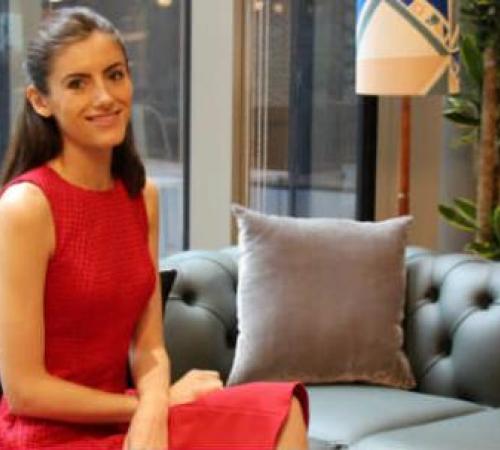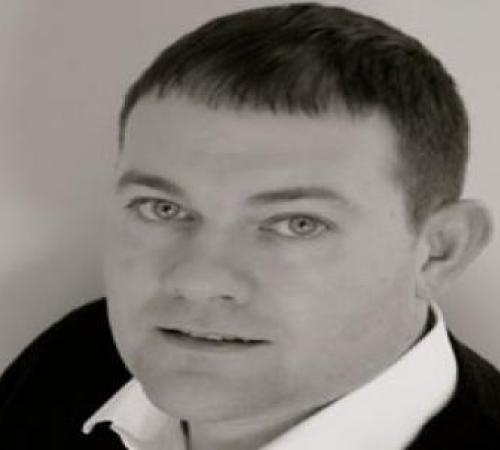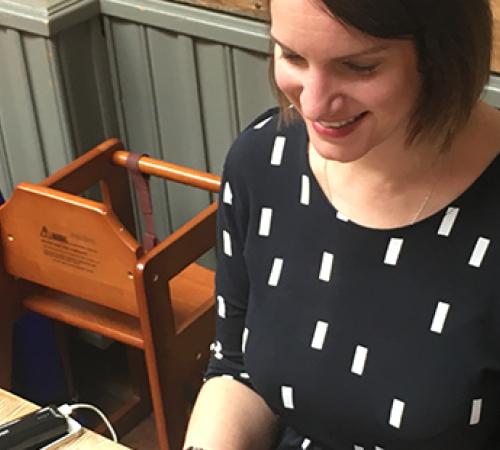
How and why a young entrepreneur set up the Young Entrepreneur Networking Association

Four years on, YENA is now a sustainable business in six major UK cities with ambitious plans to set up networks internationally but staying true to its social purpose to ‘connect the next generation of business leaders’.
How did you get started?
I started my first business having dropped out of university at 19. I was eight months into my first year on a business enterprise degree but realised that academia really wasn’t for me. I like to learn by doing rather than listening.
So I left and started my first creative agency building brands firstly for friends and family, and then for bigger clients. I subsequently joined a social agency specialising in leisure and hospitality before leaving to take on YENA as a business.
What gave you the idea for YENA?
Through all these moves, I realised how tough it was to grow a business as a young founder. My friends didn’t really ‘get’ what I did for a living – and my parents probably never will. Leaving university having no money, no contacts, no business knowledge and still looking about 12 years’ old was always going to put me on the back foot. I realised that I was always the youngest person in the networking events I went to and it made me wonder where all the other people like me were.
So I thought let’s see if I can set up a meeting to find more people like me. What followed, back in April 2013, was the first monthly meet up of YENA in a bar in Bristol. It quickly started to grow. People were coming from all around the country in search of other people like them and to have conversations where they could be open and honest rather than feel stifled at more intimidating events.
In the middle of last year, I decided to jump out of the social agency I worked at and concentrate on YENA full-time.
What made you take the jump?
While the social agency was doing well, I think more people today are thinking about their ‘why’ and their purpose, and I realised that I enjoy helping people. I can do this far more through YENA – helping people go from wanting to do something to actually go and make it happen.
I also wanted to achieve something on a large scale. The agency I was in was always going to be quite boutique which is great but it didn’t really align with my goals.
How quickly has YENA grown?
When YENA began it was simply a community. At the start of this year, I launched the membership model for YENA where members can sign-up from £6 – £15 a month, so it’s very accessible for everybody which is important in terms of our social commitment and helping people whatever their circumstances. We can supply them with discounted tools and resources as well as membership exclusives, and business mentoring.
We’re now running events across six cities in the UK – Bristol, Bath, Manchester, Birmingham, London and Reading – and we’re poised to launch in more UK cities and possibly internationally this year. We now have around 125 members, as well as getting around 2,500 people a year signing up to our events, and reaching over a million people per year through our various communications. We’ve achieved financial sustainability in about three months.
What challenges does YENA face?
There are almost too many opportunities for us to explore and the challenge is working out which ones will work best. The main objective we’ve worked on so far is our membership model which is creating our core revenue, but we’ve recently rolled out other angles such as sponsorship – having 48+ events a year presents a good opportunity for businesses to work with our brand.
While our consulting model Future Insights helps brands to understand the needs and expectations of the next generation of business owners – important to them for building a future-proofed strategy that can set them apart from their competition and ensure their survival during disruptive times.
How are your finances?
We’ve built YENA in the leanest way possible. I see lots of entrepreneurs who celebrate fundraising as a success as opposed to seeing it as a facility to achieve success. Our members are aware that fundraising is important but it’s not actual success.
We want to set an example and see how far we can get without fundraising and self-fund as much as we can, although we do expect that a fundraising round won’t be too far away – now that we’ve built a sustainable business, it will help us to grow
Do you struggle being the sole founder?
In my last business I had a business partner and we could share the challenges. In a way though I enjoy it more now because I get to make all the decisions – which perhaps shows a lot about my personality. At the same time, I realise I’m an ideas person and Abby – the first employee at YENA – is the opposite to me which creates a strong team, together, in terms of making things happen.
What mistakes have you made along the way?
I have had a tendency to overthink before delivering. Previously I would sit on ideas for so long until someone else started to do them and I would kick myself for not acting sooner. Now I tell people what I’m going to do and hold myself accountable to that promise which means when I make a decision, I go for it. After all, you can’t really be a start-up unless you actually ‘start’.
One of the biggest challenges I’ve had – which is especially applicable to younger entrepreneurs and start-ups – is pricing yourself, particularly if you’re in an industry with very little competition. It’s understanding what your value is and being confident of that value. Lots of people undercharge which I’ve done lots of times just because I want the work but you don’t realise that it undervalues your services and products and gives a lower perceived value as a result, actually often hindering sales.
What’s the future for YENA?
We get enquiries from around the world saying we’d love to run events but we’re being very careful about not expanding too fast. By the end of the year we’ll also hopefully have a few more UK locations.
We’re also working on some exciting avenues for developing the business in new ways. I can’t say much more than that as this moment but they’ll hopefully help us to help more people everywhere and some in a much more comprehensive way.
What advice would you give to young entrepreneurs?
A lot of people think youth is a disadvantage but what you don’t realise is that the older, intimidating people who may be wearing expensive suits or driving nice cars at the event you’re going to are also human. They may also have been in your position at one point and are generally more open to helping younger people.
I would also say it’s all about attitude, how you adapt, and how dynamic you are.
For more information go to YENA (external link)
Find out more about our small business insurance
Disclaimer:
At Hiscox, we want to help your small business thrive. Our blog has many articles you may find relevant and useful as your business grows. But these articles aren’t professional advice. So, to find out more on a subject we cover here, please seek professional assistance.






